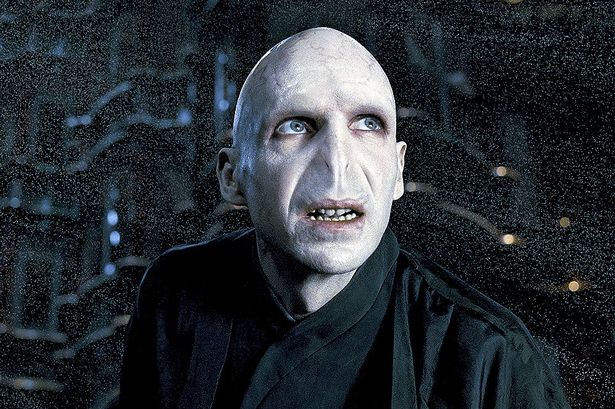Recently I co-wrote a chapter with Dr. Neil Shortland in a volume on the Harry Potter series dedicated to culture, politics, and international relations, called Cultural Politics in Harry Potter: Life, Death and the Politics of Fear (London: Routledge, 2019). The chapter we wrote is about how Voldemort’s strategy for immortality is much like how terrorist groups operate; it’s called “Al-Qa’ida and the Horcruxes: Quests for Immortality by Violent Extremist Organizations and Lord Voldemort.” Here is the link to the amazon page if you’re keen.
In our article we discuss the way that Voldemort’s pursuit of immortality through creating Horcruxes decentralizes his own self into various soul fragments. Ostensibly, this would keep him alive for longer, and hopefully forever, because in order to fully kill him, every fragment would have be destroyed. Decentralization then presents itself as a means of staying alive, but it comes at a cost. Ironically, it serves to confirm his inevitable demise. Terrorist organizations have a similar life cycle and a similar pattern of trying to “stay alive” through splintering off into smaller cells (they can’t exactly have a central headquarters now can they?). So Voldemort’s strategy becomes a helpful illustration of this phenomenon among extremists.
Dr. Shortland, who is an expert on terrorism at the University of Massachusetts (Lowell), originally came up with the idea and contacted me to see if I’d be keen to help him with the project. We agreed to work together, and he gave me some interesting homework to do. In particular, he had me read The Looming Tower by Lawrence Wright, which is all about Al-Qa’ida and 9/11. I also re-read the Harry Potter series with this model of terrorism and decentralization in mind as I was teaching a “Christian Theology and Harry Potter” class at a Christian High School in Las Vegas. Neil and I presented our preliminary paper at the Chestnut Hill Harry Potter Conference in 2016 (hosted by Chestnut Hill College in Philadelphia). The feedback was wonderful, and we were able to then tighten up the final product before submitting it for consideration in the present volume on cultural politics. The whole process was a ton of fun, and I loved being able to contribute to this chapter as well as this excellent volume.
Here is a description of the book from the publisher:
Cultural Politics in Harry Potter: Life, Death and the Politics of Fear is the first book-length analysis of topics, such as death, fear and biopolitics in J.K. Rowling’s work from controversial and interdisciplinary perspectives. This collection brings together recent theoretical and applied cultural studies and focuses on three key areas of inquiry: (1) wizarding biopolitics and intersected discourses; (2) anxiety, death, resilience and trauma; and (3) the politics of fear and postmodern transformations. As such, this book:
(a) provides a comprehensive overview of national and gender discourses, as well as the transiting bodies in-between, in relation to the Harry Potter books series and related multimedia franchise;
(b) situates the transformative power of death within the fandom, transmedia and film depictions of the Potterverse and critically deconstructs the processes of subjectivation and legitimation of death and fear;
(c) examines the strategies and mechanisms through which cultural and political processes are managed, as well as reminding us how fiction and reality intersect at junctions, such as terrorism, homonationalism, materialism, capitalism, posthumanism and technology.
Exploring precisely what is cultural about wizarding politics, and what is political about culture, this book is key reading for students of contemporary literature, media and culture, as well as anyone with an interest in the fictional universe and wizarding world of Harry Potter.





Leave a Reply
Your email is safe with us.